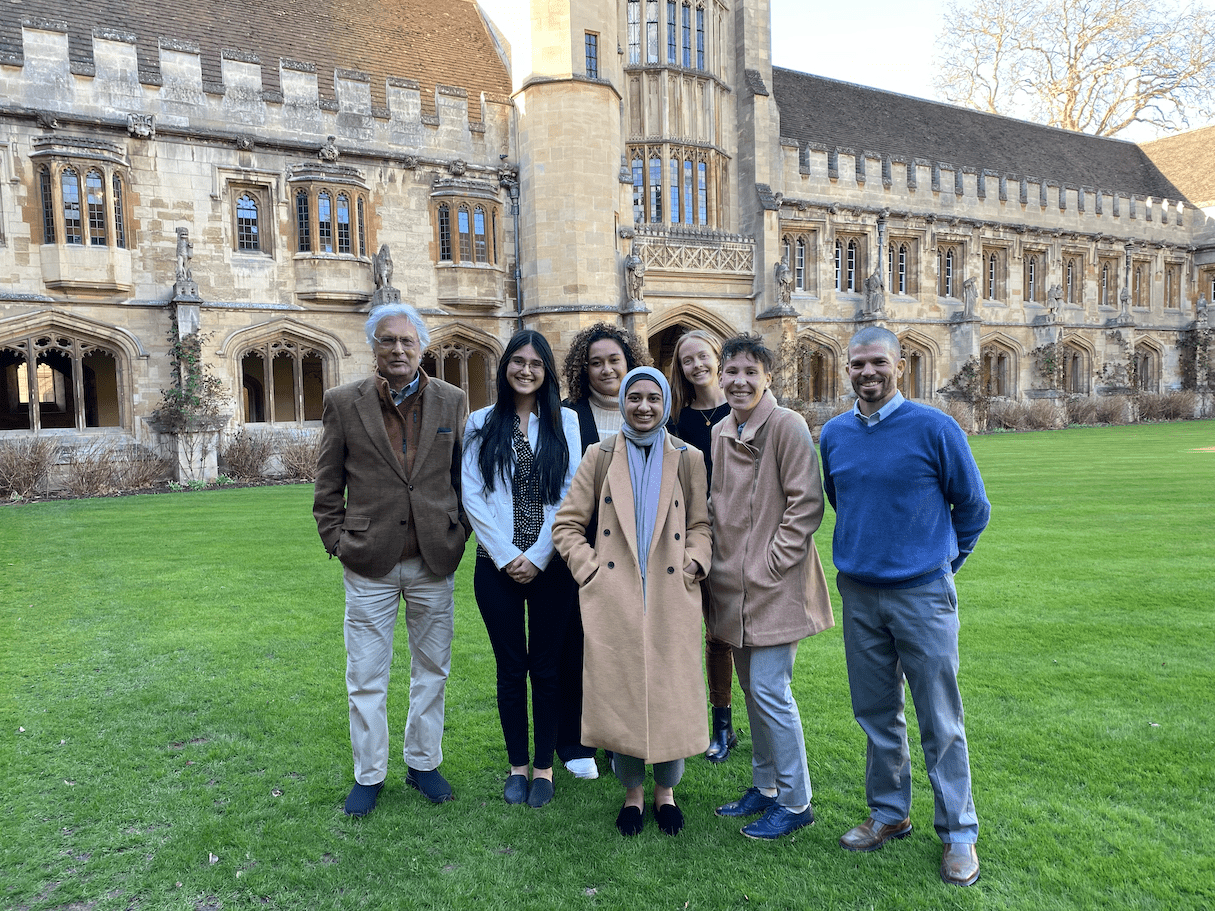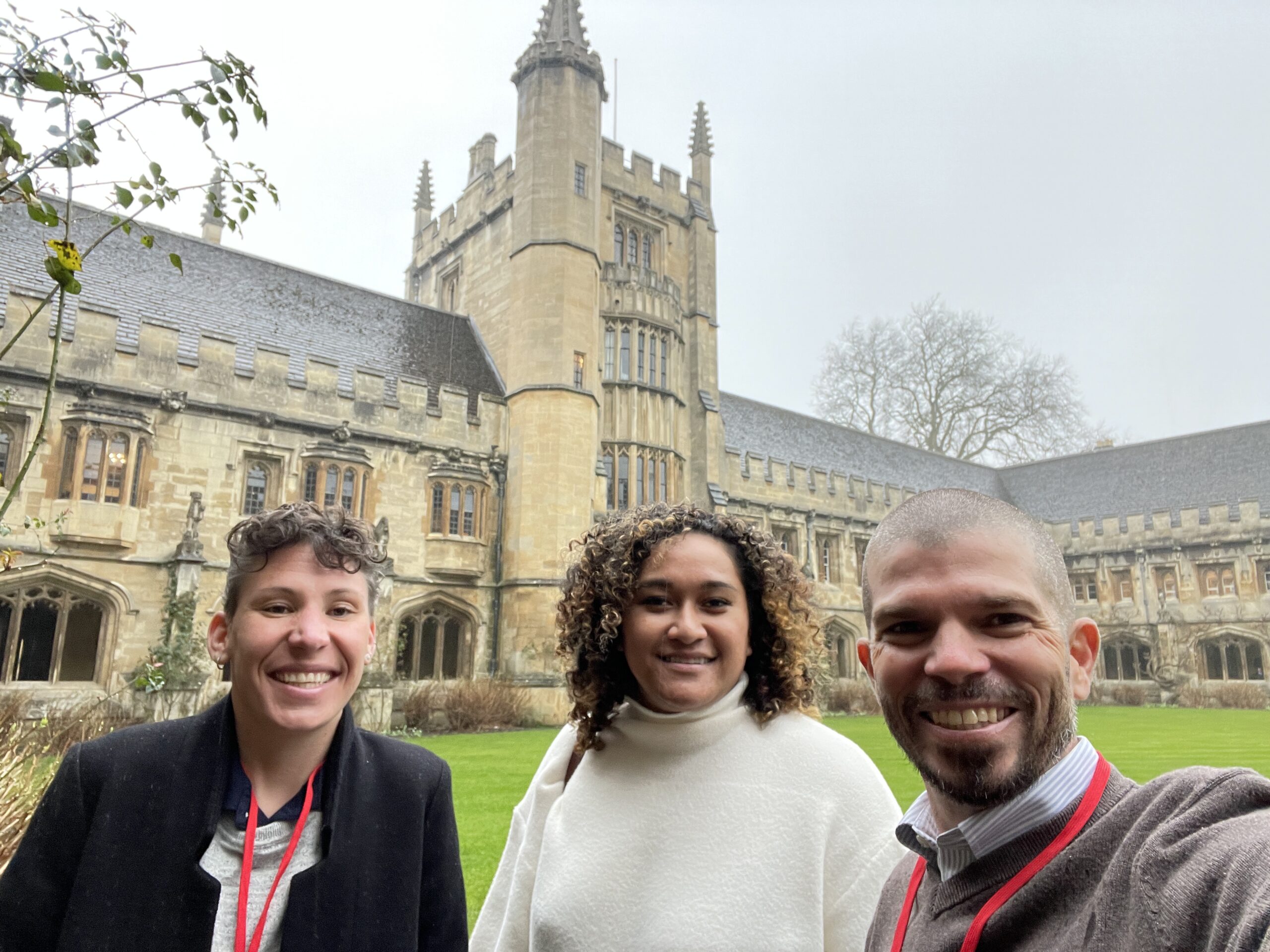 Third-year law students Bernadine Ott, Kim Koeven, and Scott McMurtrey recently spent a week in England learning about human rights, armed conflict, foreign policy, peacemaking, and more.
Third-year law students Bernadine Ott, Kim Koeven, and Scott McMurtrey recently spent a week in England learning about human rights, armed conflict, foreign policy, peacemaking, and more.
The Oxford Consortium for Human Rights hosted a week-long workshop titled “Human Rights, Armed Conflict and the Struggle for Peace,” an especially apt topic with the current Russian invasion of Ukraine. Held annually at Oxford University in England, this workshop is a chance for students interested in human rights and foreign policy to learn from international experts and their fellow students.
The three law students were joined by two undergraduate University of Utah students and a Westminster student to form one of the cohorts from Utah, with eight undergrad honors students forming the second cohort from Utah.
“The University of Utah’s recognition of the importance of the consortium and commitment to sending students speaks to the vision of our institution and the commitment to human rights, dignity, freedom, and inclusive education by our faculty,” Koevan said.
McMurtrey was interested in attending because the workshop topics lined up with his military background.
“I wanted to learn more about international human rights laws in the context of armed conflict, and this was an incredible opportunity to work with and learn from current international experts,” he said.
Expert speakers included faculty members from both Oxford and U.S. universities, a former deputy national security advisor to the UK prime minister, a senior UK major general, and a leading tech futurologist.
At the end of the week, groups of students had to present on the theme of “Breaking the Silence,” about local organizations that are making a difference and speaking up about important issues. The Utah students focused on the refugee crisis and the work of the International Rescue Committee and the Catholic Community Services with a presentation titled “Refuge: The Road to Realization.” They were able to apply the ideas they had learned throughout the week to their presentation, and they shared plans for implementing change when they returned home from the consortium.
“Just being there was very inspiring,” Ott said. “Being surrounded by people who’ve dedicated decades of their life to humanitarian work and seeing students who have a passion and are already doing the work in their communities was enlightening. The experience was a wake-up call for me because being in that environment made it easier for me to envision the possibilities of what I could do to serve communities that need help.”
Deen Chatterjee, a former senior fellow at the S.J. Quinney College of Law and a faculty director at the Oxford Consortium, convened several study sessions in the weeks leading up to the workshop and joined the students at Oxford as a member of the Consortium teaching team.
The law students plan to take much of what they learned during the consortium and apply it to their careers.
“One of the main themes throughout the workshop was the need to bring diverse voices to the table,” McMurtrey said. “Whether in diplomatic negotiations, on the ground in a humanitarian aid capacity, or applying international law to local policy, we need diverse voices to help facilitate meaningful solutions. I hope to apply this in my future legal career no matter what field I pursue.”
Koevan agreed that the lessons learned during the week had broad implications. 
“The consortium has inspired me to seek workspaces with groups of people committed to working together to expand access to transformational interdisciplinary and inclusive education experiences related to human rights and advocacy, engage in critical (often difficult) dialogue, analyze and self-reflect on my privilege, notice, acknowledge, and take action when voices are missing from conversations and decision-making processes, and recognize that having more questions than answers is a part of the process of growth and change,” Koevan said.
Ott highly recommends the consortium to law students who are interested in human rights.
“Going to a different country, you get exposed to so many more experiences and connections,” she said. “The speakers they invite are the people who are out there actually making the decisions, doing the research, and doing the humanitarian work. It’s such a monumental experience.”
#####
